第7章 THE ELEMENTS OF DISCORD:FOREIGN(2)
The course of his walk will have been enlivened by a considerable to and fro of pleasure and business.He will have encountered many varieties of whites,-sailors,merchants,clerks,priests,Protestant missionaries in their pith helmets,and the nondescript hangers-on of any island beach.And the sailors are sometimes in considerable force;but not the residents.He will think at times there are more signboards than men to own them.It may chance it is a full day in the harbour;he will then have seen all manner of ships,from men-of-war and deep-sea packets to the labour vessels of the German firm and the cockboat island schooner;and if he be of an arithmetical turn,he may calculate that there are more whites afloat in Apia bay than whites ashore in the whole Archipelago.On the other hand,he will have encountered all ranks of natives,chiefs and pastors in their scrupulous white clothes;perhaps the king himself,attended by guards in uniform;smiling policemen with their pewter stars;girls,women,crowds of cheerful children.And he will have asked himself with some surprise where these reside.Here and there,in the back yards of European establishments,he may have had a glimpse of a native house elbowed in a corner;but since he left Mulinuu,none on the beach where islanders prefer to live,scarce one on the line of street.The handful of whites have everything;the natives walk in a foreign town.A year ago,on a knoll behind a bar-room,he might have observed a native house guarded by sentries and flown over by the standard of Samoa.He would then have been told it was the seat of government,driven (as I have to relate)over the Mulivai and from beyond the German town into the Anglo-Saxon.To-day,he will learn it has been carted back again to its old quarters.And he will think it significant that the king of the islands should be thus shuttled to and fro in his chief city at the nod of aliens.And then he will observe a feature more significant still:a house with some concourse of affairs,policemen and idlers hanging by,a man at a bank-counter overhauling manifests,perhaps a trial proceeding in the front verandah,or perhaps the council breaking up in knots after a stormy sitting.And he will remember that he is in the ELEELE SA,the "Forbidden Soil,"or Neutral Territory of the treaties;that the magistrate whom he has just seen trying native criminals is no officer of the native king's;and that this,the only port and place of business in the kingdom,collects and administers its own revenue for its own behoof by the hands of white councillors and under the supervision of white consuls.Let him go further afield.He will find the roads almost everywhere to cease or to be made impassable by native pig-fences,bridges to be quite unknown,and houses of the whites to become at once a rare exception.Set aside the German plantations,and the frontier is sharp.At the boundary of the ELEELE SA,Europe ends,Samoa begins.Here,then,is a singular state of affairs:all the money,luxury,and business of the kingdom centred in one place;that place excepted from the native government and administered by whites for whites;and the whites themselves holding it not in common but in hostile camps,so that it lies between them like a bone between two dogs,each growling,each clutching his own end.
Should Apia ever choose a coat of arms,I have a motto ready:
"Enter Rumour painted full of tongues."The majority of the natives do extremely little;the majority of the whites are merchants with some four mails in the month,shopkeepers with some ten or twenty customers a day,and gossip is the common resource of all.The town hums to the day's news,and the bars are crowded with amateur politicians.Some are office-seekers,and earwig king and consul,and compass the fall of officials,with an eye to salary.Some are humorists,delighted with the pleasure of faction for itself."I never saw so good a place as this Apia,"said one of these;"you can be in a new conspiracy every day!"Many,on the other hand,are sincerely concerned for the future of the country.
The quarters are so close and the scale is so small,that perhaps not any one can be trusted always to preserve his temper.Every one tells everything he knows;that is our country sickness.
Nearly every one has been betrayed at times,and told a trifle more;the way our sickness takes the predisposed.And the news flies,and the tongues wag,and fists are shaken.Pot boil and caldron bubble!
Within the memory of man,the white people of Apia lay in the worst squalor of degradation.They are now unspeakably improved,both men and women.To-day they must be called a more than fairly respectable population,and a much more than fairly intelligent.